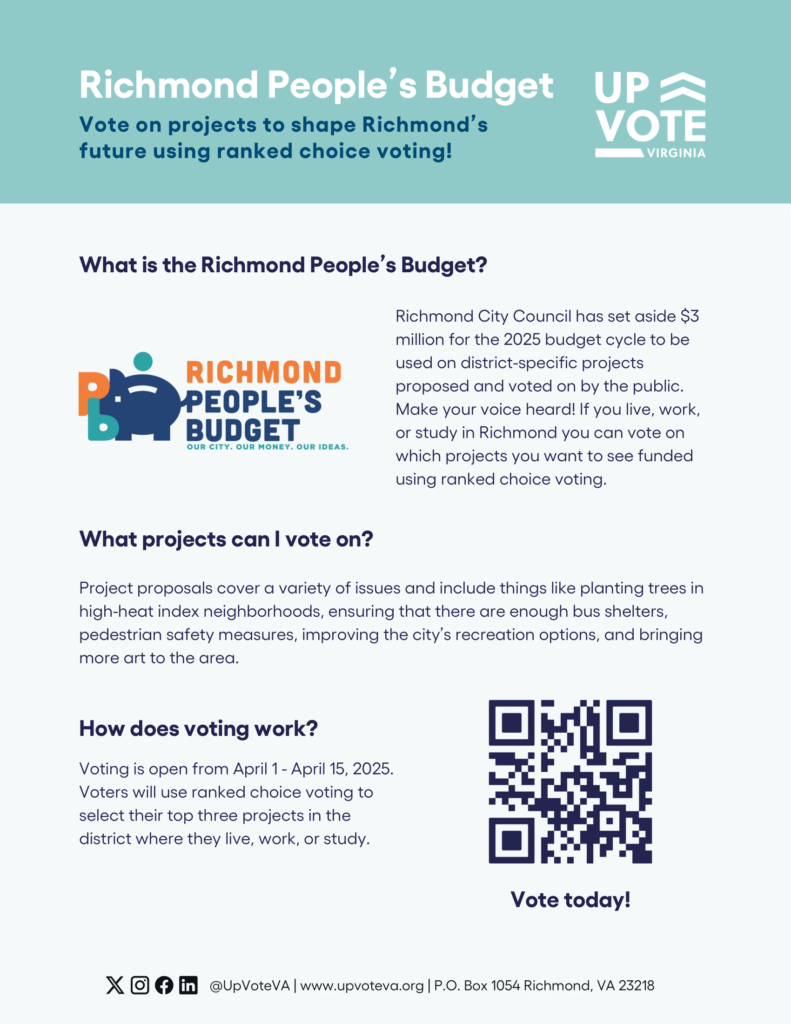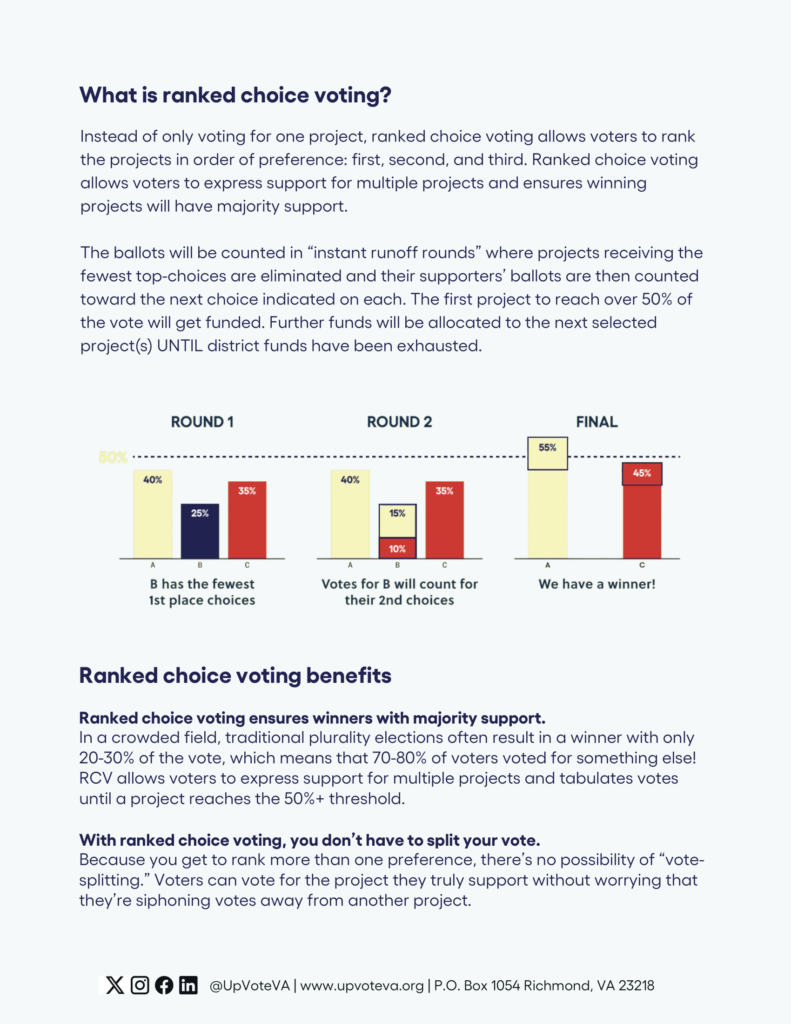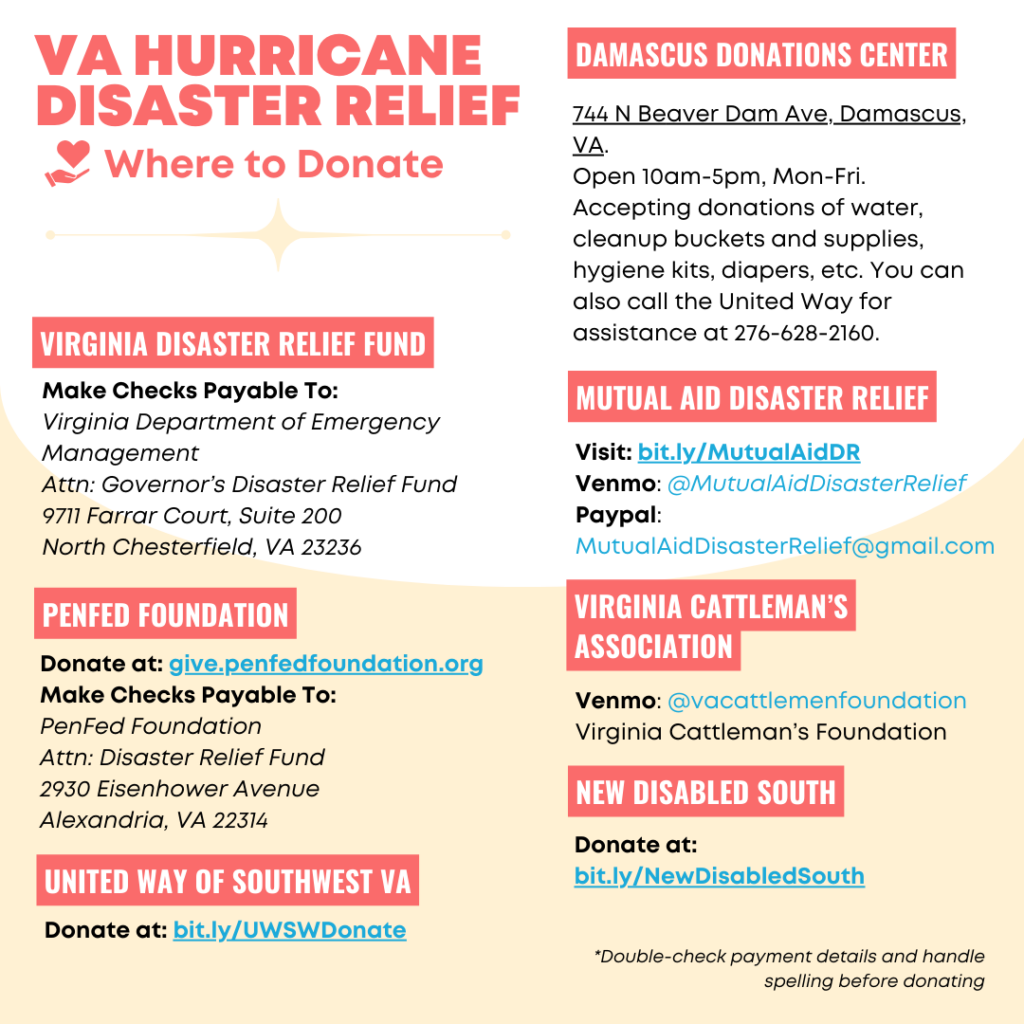
by Jimmie Lee Jarvis
ATTENTION: RICHMOND RESIDENTS!
You may have heard about the Richmond People’s Budget initiative, where residents are empowered to directly influence how $3 million in city funds are allocated to local projects. Through this process, people who live, work, and study in Virginia’s capital have the opportunity to foster transparency, equity, and collaboration and to ensure that neighborhoods historically underfunded receive the attention they deserve.
The initiative began with an idea collection phase, during which Richmonders submitted nearly 2,000 project proposals. Not to be competitive, but that’s significantly more proposals than Durham or Boston received when they launched their participatory budget initiatives! Budget delegates refined these ideas into actionable plans, ranging from bus stop shelters to splash pads and storm drain repairs. Now, residents, workers, and students 14 and older can vote on their favorite projects using ranked-choice voting, allowing nuanced preferences and empowering young people who care about their community.
I just filled out my ballot, and it couldn’t be easier. All you need to provide is your name, phone number, and email address. You select the City Council District you live, work, or study in, and you’ll be redirected to a list of proposed projects in your district, along with estimated costs. Select your three favorites, and hit “Submit Ballot”. Then, you are prompted to sort your three choices in order of preference. It took me just five minutes to advocate for better bus stops and more tree cover in my neighborhood!
This innovative approach allocates resources, builds community leaders, and strengthens civic engagement. Richmond’s participatory budgeting is an excellent example of how cities can empower residents to shape their futures. Voting is open until April 15, so make your voice heard and help bring impactful projects to life in your neighborhood!



